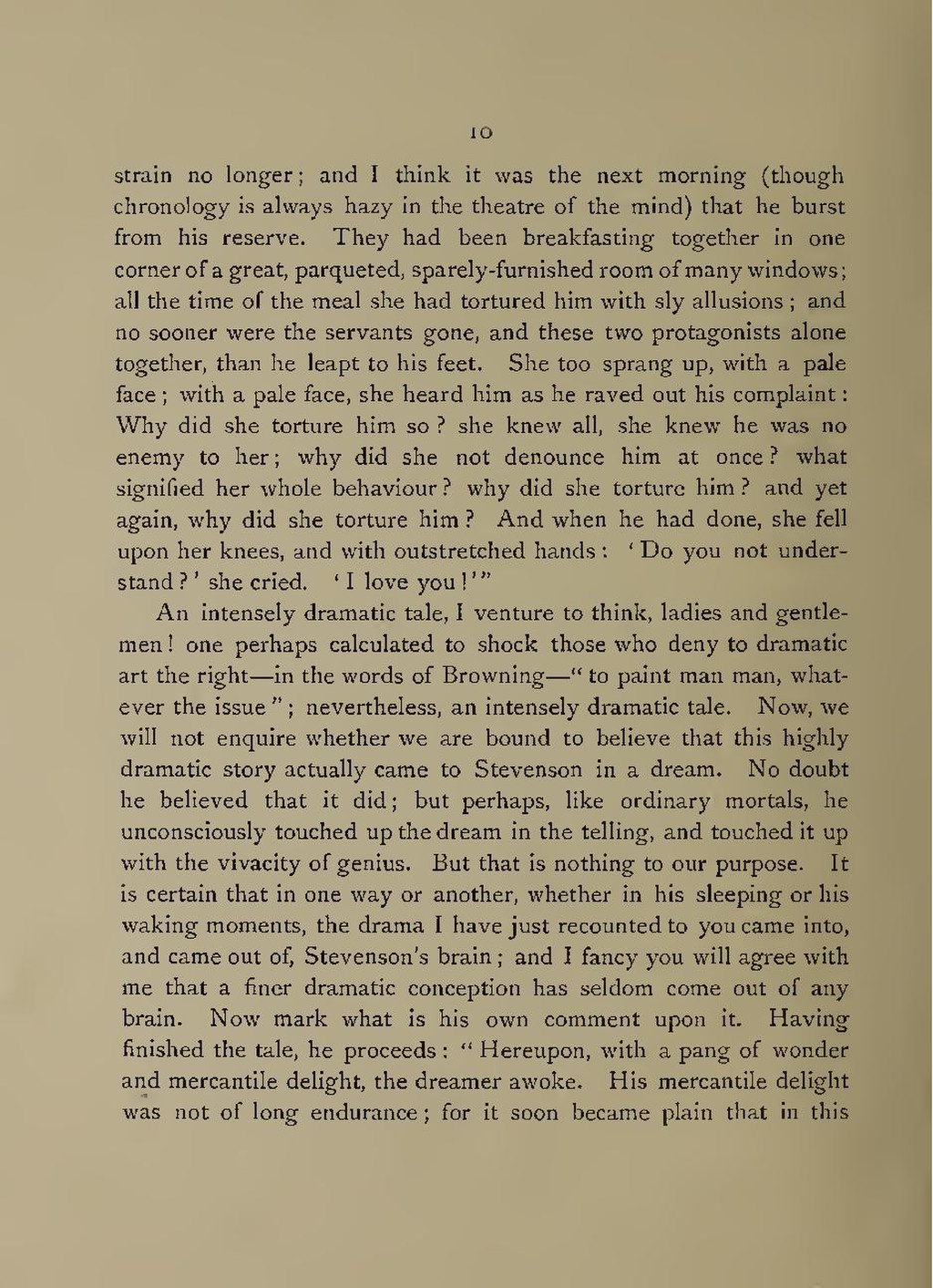10
strain no longer; and I think it was the next morning (though chronology is always hazy in the theatre of the mind) that he burst from his reserve. They had been breakfasting together in one corner of a great, parqueted, sparely-furnished room of many windows; all the time of the meal she had tortured him with sly allusions; and no sooner were the servants gone, and these two protagonists alone together, than he leapt to his feet. She too sprang up, with a pale face; with a pale face, she heard him as he raved out his complaint: Why did she torture him so? she knew all, she knew he was no enemy to her; why did she not denounce him at once? what signified her whole behaviour? why did she torture him? and yet again, why did she torture him? And when he had done, she fell upon her knees, and with outstretched hands: 'Do you not understand?' she cried. 'I love you!'"
An intensely dramatic tale, I venture to think, ladies and gentlemen! one perhaps calculated to shock those who deny to dramatic art the right—in the words of Browning—"to paint man man, whatever the issue"; nevertheless, an intensely dramatic tale. Now, we will not enquire whether we are bound to believe that this highly dramatic story actually came to Stevenson in a dream. No doubt he believed that it did; but perhaps, like ordinary mortals, he unconsciously touched up the dream in the telling, and touched it up with the vivacity of genius. But that is nothing to our purpose. It is certain that in one way or another, whether in his sleeping or his waking moments, the drama I have just recounted to you came into, and came out of, Stevenson's brain; and I fancy you will agree with me that a finer dramatic conception has seldom come out of any brain. Now mark what is his own comment upon it. Having finished the tale, he proceeds: "Hereupon, with a pang of wonder and mercantile delight, the dreamer awoke. His mercantile delight was not of long endurance; for it soon became plain that in this
